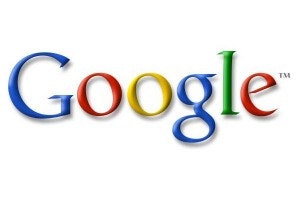After the disastrous Facebook Inc (NASDAQ:FB) IPO last year, which followed botched IPOs from Zynga Inc (NASDAQ:ZNGA) and Groupon Inc (NASDAQ:GRPN), many Silicon Valley investors have lost their appetite for newfangled dot-com stocks that base their businesses on social media and cloud-based integration. Yet two popular cloud-based storage boxes – Dropbox and Box – might go public in 2013 or 2014. Cloud-based services are a hot industry, as the rising adoption of smartphones, tablets and other mobile devices have increased the need for instantly synchronized data that can be accessed across a myriad of devices.

Yet this is an industry currently dominated by tech heavyweights such as Google Inc (NASDAQ:GOOG), Microsoft Corporation (NASDAQ:MSFT), and Apple Inc. (NASDAQ:AAPL), all of which have made cloud-based storage an ancillary, not primary, source of revenue. Therefore, is there room for two companies, which base their entire business models on cloud-based storage, to flourish? Or will these two companies be dead on arrival due to their underestimation of the steep challenges in the market?
Stuffing a cloud into two boxes
In contrast to more full-featured services from Google Inc (NASDAQ:GOOG) and Microsoft Corporation (NASDAQ:MSFT), Dropbox and Box offer a simple storage service that emphasizes operating system integration and seamless synchronization. Pictures taken on a smartphone, for example, can be instantly uploaded to a cloud-based backup folder, while documents placed in a synchronized folder on a desktop will instantly be available across multiple devices. The simplicity of Dropbox and Box’s system of cloud-based synchronization has made carrying USB flash drives or e-mailing documents to oneself outdated habits.
Dropbox has notably focused on average consumers, providing them with 2 GB of free storage that can be upgraded upon user referrals. This approach has helped the company rapidly grow its active user base to approximately 200 million. Dropbox is valued at approximately $4 billion. Box, on the other hand, is more focused on enterprise consumers, and boasts more robust security features and integration with products from cloud computing giant salesforce.com, inc. (NYSE:CRM). Box provides free users with 5 GB of storage and has 15 million users. It is currently valued at $2 billion.
Two Davids vs. an army of Goliaths
First, we should compare Dropbox and Box to their larger rivals.
Free Space | Premium Space | File Size Limit | Best used for: | Supported Platforms | |
Dropbox | 2-18 GB (referral based) | $99 per year for 100 GB | Unlimited | Seamless Syncing | Windows, Mac, Linux, iOS, Android, BlackBerry |
Box | 5-50 GB (referral based) | $180 per year for 1000 GB | 2 GB | Seamless Syncing | Windows, Mac, Linux, iOS, Android, BlackBerry |
Google Drive | 5 GB | $59.98 per year for 100 GB | 10 GB | Web apps (Google Docs) | Windows, Mac, iOS, Android |
Microsoft Skydrive | 7 GB | $50 per year for 100 GB | 2 GB | Web apps
| Windows, Mac, iOS, Android, Windows Phone |
Apple iCloud | 5 GB | $100 per year for 50 GB | Free: 25 MB
| iTunes, Mac to iOS syncing | Mac, iOS, Windows (basic tools) |
Advantage | Skydrive | Box | Dropbox | N/A | Dropbox/Box |
While Microsoft Corporation (NASDAQ:MSFT) is the most generous in its initial free space allocation of 7 GB, its premium option is not as impressive as the amount of space offered by Box. In fact, neither Microsoft Corporation (NASDAQ:MSFT) nor Google Inc (NASDAQ:GOOG) can match the paid storage capacities of Dropbox and Box.
Different methods for different goals
However, Microsoft and Google Inc (NASDAQ:GOOG) are concentrating on seamless document creation, via Office and Docs, respectively, and not mass file storage. Microsoft has also integrated Skydrive into its Windows Phones, which seamlessly pairs its mobile products with its Windows 8 devices. Microsoft Corporation (NASDAQ:MSFT) also offers free, watered-down versions of Word, Excel and PowerPoint to compete with Google Inc (NASDAQ:GOOG)’s document creation tools.

